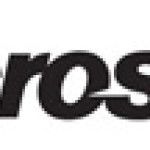- Industry: Computer
- Number of terms: 318110
- Number of blossaries: 26
- Company Profile:
An American multinational software corporation headquartered in Redmond, Washington that develops, manufactures, licenses, and supports a wide range of products and services related to computing.
Within the context of the .NET Framework, the hub is the main assembly that contains the nonlocalizable executable code and the resources for a single culture, called the “neutral” or “default” culture. The default culture is the fallback culture for the application. Each spoke connects to a satellite assembly that contains the resources for a single culture, but does not contain any code.
Industry:Software; Translation & localization
A Graphics Device Interface (GDI) structure that defines a set of graphics objects and their associated attributes, as well as the graphics modes that affect output. The graphics objects include a pen for line drawing, a brush for painting and filling, a bitmap for copying or scrolling parts of the screen, a palette for defining the set of available colors, a region for clipping and other operations, and a path for painting and drawing operations.
Industry:Software; Translation & localization
Within the context of Windows, a set of controlling elements (windows) that are implemented by the common control library, which is a dynamic-link library (DLL) included with the Windows operating system. Like other control windows, a common control is a child window that an application uses in conjunction with another window to perform input/output (I/O) tasks.
Industry:Software; Translation & localization
A group of strokes in a Chinese character that are treated as a unit for the purposes of sorting, indexing, and classification. A character can contain more than one element that is recognized as a radical, but each character contains only one element, called the “main radical,” that is used as the indexing radical. The main radical often gives a hint as to the general meaning of the character, and other radicals in the character might indicate how the character is pronounced.
Industry:Software; Translation & localization
A group of Windows utilities used to edit system settings, including international preferences.
Industry:Software; Translation & localization
A Japanese script of phonetic syllables, chiefly used to spell words borrowed from other languages. Each katakana character represents a phonetic syllable.
Industry:Software; Translation & localization
A key that does not produce a character by itself, such as the accent key on the international keyboard. However, when the user types in a character after pressing the accent key, an accented character appears.
Industry:Software; Translation & localization
A keyboard combination that activates a program command directly, as an alternative to activating the command through the program menus.
Industry:Software; Translation & localization
A language that is localized before other languages; this language is used to define the localization process and to test for localizability issues. See localizability, localization.
Industry:Software; Translation & localization
A linguistic rule, measurement, educational guideline, or technology-related convention as defined by a government or by the International Organization for Standardization. Examples include character sets, keyboard layouts, and some cultural conventions, such as punctuation.
Industry:Software; Translation & localization
